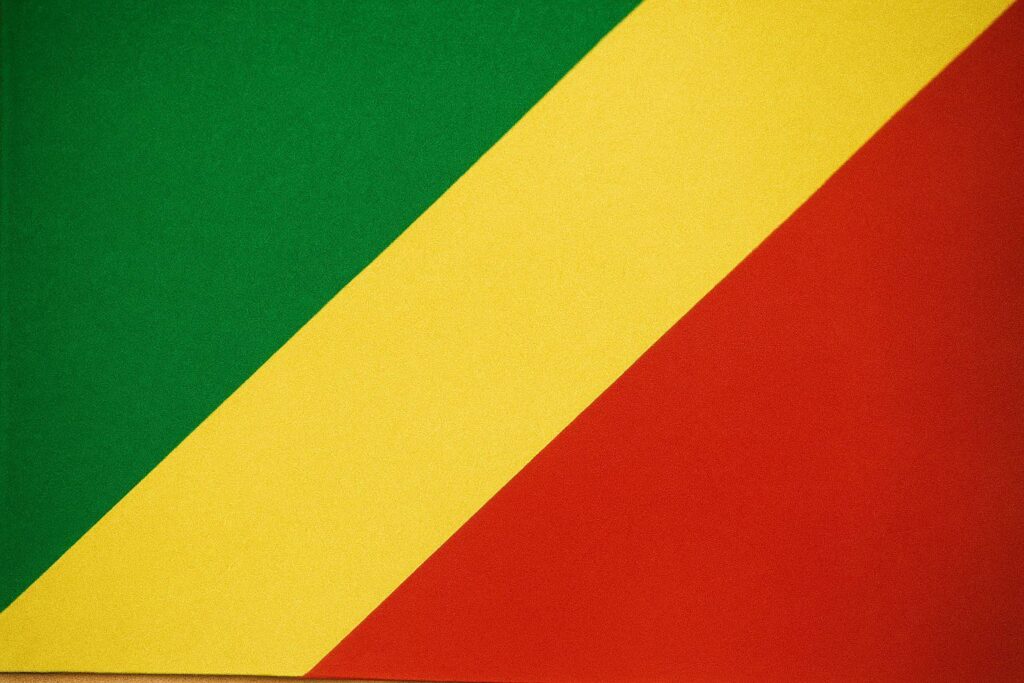From Colonial Ledger to Contested Independence
The modern Republic of the Congo emerged from the administrative grid of French Equatorial Africa, where Brazzaville once functioned as the symbolic “capital of Free France” during the Second World War. The passage from colonial tutelage to republican sovereignty on 15 August 1960 was anything but linear. A rapid succession of leaders, including the charismatic but short-lived presidency of Fulbert Youlou, reflected the incomplete transfer of institutional capacity. Paris retained economic leverage through the CFA-franc zone and opaque concessions in forestry and minerals, a dynamic still perceptible in present-day contracts reviewed by Transparency International.
The Marxist Interlude and Its Lingering Echoes
By 1969 the country had recast itself as the People’s Republic of the Congo, adopting a Soviet-inspired single-party system. Though ideological, the shift also demonstrated an ambition to insulate Brazzaville from French political patronage. The experiment unravelled in the early 1990s when windfalls from newly exploited offshore blocks could no longer mask fiscal mismanagement and a burgeoning external debt. Multi-party elections in 1992 seemed to inaugurate a genuine democratic opening, yet civil war in 1997 reinstated Denis Sassou Nguesso, the very military-political entrepreneur who had governed during the socialist era. The 2003 comprehensive peace accords ended large-scale hostilities, but periodic flare-ups in the Pool region attest that the monopoly of violence remains negotiated rather than absolute (International Crisis Group).
Hydrocarbon Heft and the Politics of Rent Distribution
Oil accounts for roughly 80 percent of export revenues and two-thirds of government income, according to the IMF’s 2023 Article IV consultation. Production, however, is declining from its 2010 peak, and newly sanctioned offshore projects are capital-intensive, demanding terms attractive to international majors such as Eni and TotalEnergies. The fiscal regime, recalibrated in 2021, tightens royalty rates but still offers generous cost-recovery clauses. As a consequence, Brazzaville’s debt-to-GDP ratio hovers near 90 percent, elevated for a lower-middle-income country. Chinese policy banks, which hold an estimated 35 percent of external obligations, recently agreed to a rescheduling that extends maturities without significant nominal haircuts, perpetuating what Congolese economists label a ‘controlled dependency’.
Rent concentration also shapes the domestic political landscape. A 2022 household survey by the World Bank shows 40 percent of citizens living below the national poverty line, despite a per-capita income that nominally surpasses several Sahelian neighbours. Patronage networks anchored in the presidential clan distribute public sector positions and infrastructure contracts, producing a cartography of privilege that aligns closely with ethnic and regional loyalties. Critics, including the Episcopal Conference and segments of the urban press, argue that this architecture of selective generosity undergirds the regime’s longevity more decisively than formal electoral performance.
Constitutional Engineering and Elastic Legitimacy
The 2015 constitutional referendum, which abolished age limits and introduced an upper chamber styled as a Senate, exemplifies what Freedom House deems ‘legalistic authoritarianism’. While the text appears to diffuse power via a semi-presidential construct, decrees issued under article 96 permit the executive to rule by ordinance during vaguely defined ‘exceptional circumstances’. The 2021 presidential election delivered President Sassou Nguesso 88 percent of the vote amid an opposition boycott and a nationwide internet shutdown. The African Union observation mission praised the ‘generally calm atmosphere’, yet simultaneously urged the government to ‘indefinitely lift’ restrictions on digital communication—an admonition that reveals the dissonance between procedural order and substantive participation.
Urban Gravity and Social Pressures
Approximately 70 percent of Congolese reside in Brazzaville and the coastal hub of Pointe-Noire. This hyper-urbanisation feeds both cultural vibrancy and infrastructural strain. UN-Habitat estimates a housing deficit of 450,000 units, while intermittent power cuts undermine industrial diversification beyond the oil enclave. Youth unemployment, officially at 19 percent, is perceived by civil society to be far higher. The authorities have sought to defuse discontent through flagship projects such as the Congo-Oyo highway and the Chinese-financed special economic zone at Maloukou; yet Foreign Direct Investment outside hydrocarbons remains marginal, a reality underscored by UNCTAD’s 2023 report that placed Congo 145th globally for non-extractive investment attraction.
Diplomacy in a Multipolar Neighbourhood
Brazzaville’s foreign policy balances Francophone ties with an overt courtship of Beijing and, increasingly, Ankara and Abu Dhabi. The country hosts the headquarters of ECCAS, the regional bloc that aspires to mediate conflicts from Chad to the Central African Republic, thereby reinforcing Congo’s soft-power profile. During the 2024 Luanda trilateral talks on eastern-DRC instability, Congolese envoys proposed a maritime logistics corridor linking Pointe-Noire to Kinshasa—an idea welcomed by the United Nations Office for Central Africa as a confidence-building measure. Simultaneously, the government cultivates environmental credentials through the Congo Basin Climate Commission, chaired by President Sassou Nguesso, which advocates carbon market mechanisms to monetise the rainforest. Observers note that such initiatives may also serve as diplomatic hedges against Western pressure on governance.
Prospects for Reform amid Entropy
Fiscal consolidation, digital transparency portals and a gradual opening of the telecommunications sector are highlighted in the government’s 2022–2026 National Development Plan. Yet implementation hinges on the political calculus of an elite that perceives systemic change as both necessary and perilous. The European Union’s ambassador in Brazzaville remarked privately that ‘incrementalism is the only currency accepted here’, hinting at a reform tempo calibrated to avoid destabilising the patronage matrix. As offshore reserves mature and climate imperatives gather pace, the Republic of the Congo confronts a precarious equation: preserve the hydrocarbon lifeline while engineering a post-oil horizon, all under a political compact whose resilience is predicated on the very rents that are beginning to dwindle.

